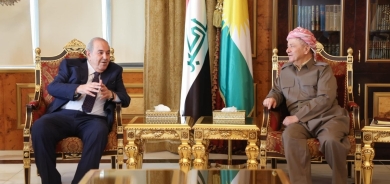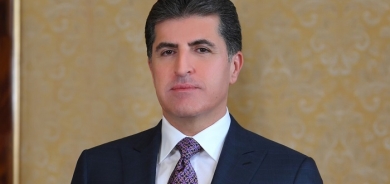Davutoğlu Warns of Instability in the Middle East, Calls for Regional Dialogue

Former Turkish Prime Minister Ahmet Davutoğlu has cautioned that the Middle East risks falling into another cycle of instability and fragmentation unless regional powers prioritize dialogue and cooperation. Speaking to Kurdistan24 in an exclusive interview with Farhad Rasool, Davutoğlu drew on his diplomatic expertise to underscore the urgent need for regional integration.
“I really worry about the future of our region,” Davutoğlu said, highlighting parallels between current dynamics and historical events that have led to division and conflict.
Historical Patterns of Instability
Davutoğlu traced the region’s struggles over the past century to key turning points, including:
The post-WWI Sykes-Picot agreement, which divided communities.
The Palestinian crisis following WWII.
The rise of autocratic regimes in the wake of colonialism.
“After every big war or transformation, our region has suffered,” he remarked, expressing concern that history may repeat itself amid today’s geopolitical shifts.
Weakening of International Institutions
Davutoğlu criticized the declining effectiveness of global institutions such as the United Nations, referencing its inability to mediate the ongoing Gaza conflict. “The U.N. is much weaker than 5, 10 years ago,” he said, recalling his role as a mediator during previous Gaza wars in 2006, 2009, 2012, and 2014.
He warned that attempts to redraw regional borders could have catastrophic consequences, likening the region to a precarious wall where the removal of one stone could lead to collapse.
Concerns Over U.S. Policies
Davutoğlu also pointed to the influence of U.S. evangelical fundamentalists in shaping Middle Eastern policy, warning that their ideological support for Israel could exacerbate tensions.
A Call for Regional Solutions
Emphasizing the need for local solutions, Davutoğlu called for enhanced cooperation among Turks, Kurds, Arabs, and Iranians. “We will live together in this region, and we need to talk to each other directly,” he stated.
He outlined a comprehensive framework for stability that includes:
Domestic reforms across regional states.
Peaceful neighborly relations.
Economic integration.
Cultural coexistence.
Multi-dimensional foreign policies.
A focus on peace diplomacy.
Reflecting on his tenure as Turkey’s premier, Davutoğlu cited his efforts to establish economic zones in Mesopotamia and the Levant as potential models for fostering collaboration.
The Crossroads of Fragmentation and Integration
As tensions escalate across the Middle East, Davutoğlu’s warnings and proposals carry significant weight. His plea for dialogue and cooperation highlights the urgency of regional powers charting their own path toward peace and stability, free from the influence of external actors.
“We need to prevent any new war in this region,” Davutoğlu concluded, stressing that the future of the Middle East lies in the hands of its people.














